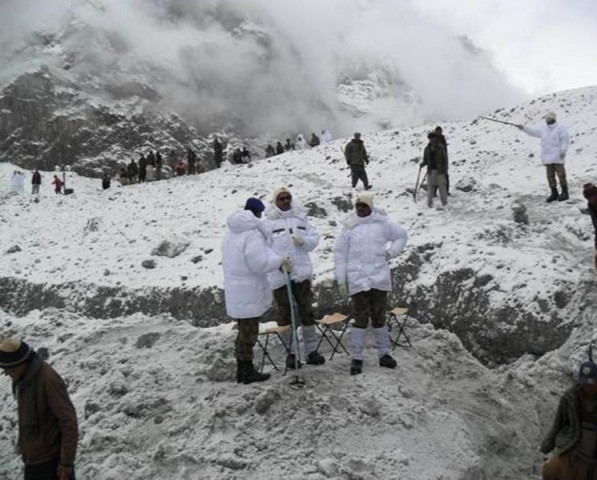At the world’s highest battleground, the only war fought is against weather
Ex-servicemen recount their deployment in Siachen, say demilitarisation is the only way out.

At the world’s highest battleground, the only war fought is against weather
A former army official posted in Siachen in 1987 remembers the roar of an avalanche that was headed for their base on a cold morning just after breakfast. Three people were killed in that avalanche.
But the natural calamity, he says, is a common occurrence in the region. In 1988, added the SSG officer, who chose to stay anonymous, an avalanche buried 47 people.
The senior officers who barely made it out of the freezing temperatures in the towering mountains of Siachen Glacier believe that demilitarisation is the only way out for India and Pakistan from the ‘war against weather’.
“There is no offensive operation going on,” said Major (retd) Haroon Maqsood, who served as an infantry officer from 1986 to 1988 in Siachen.
Brigadier (retd) Javed Hussain, an expert on the Siachen region, agreed.
“Siachen has no strategic position. Both countries should demilitarise. Along with the loss of life and the amount of money spent, the Siachen war also has environmental hazards,” he said.
The SSG soldier recounted that they would travel at night as the moon “was brighter than the lights in this room”. Nights spent inside the igloo or tents are tiresome to say the least. Lack of oxygen means the men sleep for seven hours only, waking up breathless every two to three hours.
“People get very hungry, but they get nauseous. There they drink more Energile than water,” said the retired officer.
After a soldier has spent a maximum of three months in the mountains, a process of declimatisation takes place for two weeks during which he is taken to lower altitudes and not evacuated immediately.
Once the soldier returns home, he may experience memory loss.
“During our times, we used to read newspapers, play volleyball and baseball in the snow and wait for the mail from our loved ones. We also used to hunt animals, such as the Marco Polo sheep,” said the retired SSG officer.
“Some soldiers also went into depression, but they had people to talk to and get out of it.”
All three retired soldiers said that at least 3,000 soldiers have died in combat or from the severity of the weather in Siachen.
Though Strict SOPs are followed for soldiers fighting in arctic-like conditions, Maj (retd) Maqsood recalls, “Once a soldier took off his glove to open the handle, and his hand was stuck to the door. When he pulled away, his skin ripped.”
Concluding, the retired officers reiterated that apart from severe weather conditions, there is no real threat.
“Ground operations at such altitudes have failed. There will be no launch by the Indians, only fire power to manoeuvre, and artillery exchanges to make them believe that there is a war going on,” says Hussain.
Published in The Express Tribune, April 14th, 2012.






1733130350-0/Untitled-design-(76)1733130350-0-208x130.webp)












COMMENTS
Comments are moderated and generally will be posted if they are on-topic and not abusive.
For more information, please see our Comments FAQ